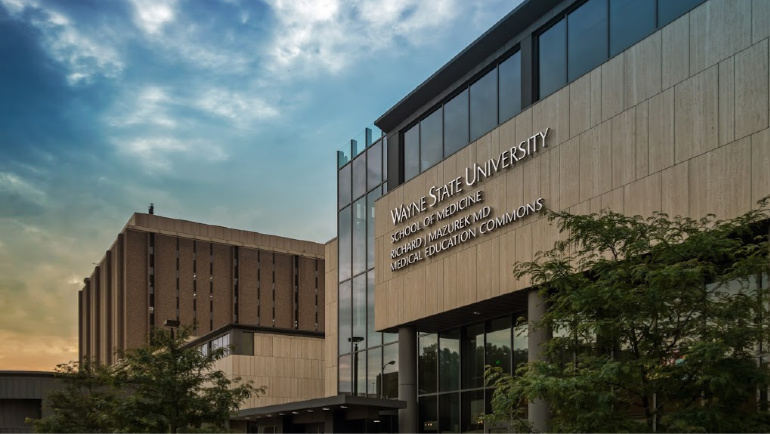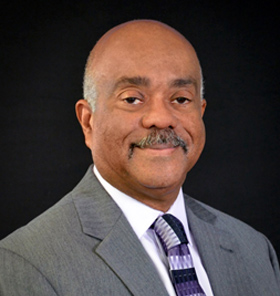
After nearly two years of planning, Wayne State University has announced a significant investment in the creation of an Urban Children’s Health Collaborative (UCHC) – a community-based, multi-mission initiative with a focus on urban child and lifespan development that will foster individual, family and community health.
“The vision is for a healthier future for metropolitan Detroit’s children and families through holistic, community-based primary and specialty pediatric care, medical education and training, and community- and population-based research,” said Herman Gray, M.D., chair of the Wayne State Department of Pediatrics.

Dr. Gray, who will develop the UCHC under the leadership of WSU President M. Roy Wilson and School of Medicine Dean Jack D. Sobel, M.D., said he has engaged in talks with the chair of the Henry Ford Medical Group Department of Pediatrics about a potential partnership to enhance the impact of the initiative.
In announcing the initiative, Dr. Gray noted that Detroit has the largest big city poverty rate in the country for children aged five and younger.
“Social determinants of health – which are largely, but not exclusively, rooted in poverty and racism – are known to increase the risk of poor health outcomes, not only in children, but also in adults,” Dr. Gray said. “Social determinants of health include access to quality housing, food insecurity, quality education, transportation, unemployment and accessible health care. These complex, integrated and overlapping issues are responsible for most health inequities, and we intend to tackle them.”
The first phase of the UCHC will occur with the launch of Wayne Pediatrics, an academic clinical practice that will be home to Wayne State Department of Pediatrics faculty physicians and will serve as the School of Medicine’s official clinical service group for pediatrics. Several ambulatory practice sites are under evaluation, as is a central clinical and administrative site.
Wayne Pediatrics will reframe how children and families receive care and services within the metropolitan Detroit community through fundamental systems evaluation and redesign – working with children and families, and collaborating with academic and community colleagues.
In partnership with the Henry Ford Medical Group, the UCHC will directly address barriers such as transportation, food insecurity and adequate housing.
Creation of the UCHC will include a comprehensive planning process to engage community stakeholders, including health systems, public health agencies, neighborhood organizations, human service organizations and policymakers.
“All children in Detroit should have an equal opportunity to be healthy, ready to learn and to achieve their full potential,” Wilson said. “A child’s ZIP code should not be the determining factor for future health. Pediatricians are, first and foremost, child advocates. This new initiative will enable Wayne Pediatrics faculty physicians to be more effective advocates, and will help many more children live up to their fullest potential. The UCHC, working in collaboration with Detroit’s myriad child and family-focused organizations, will ultimately improve the lives of children and families in our community and beyond.”
WSU medical students and residents will learn in primary care settings about community health, advocacy and the power of partnerships. Students and trainees will receive firsthand experience seeing children in non-hospital settings, giving them additional insight into the challenges faced by many families. Additionally, undergraduate and graduate students in education, psychology, public health, social work, nursing and other fields will benefit from similar learning experiences.
Research initiatives will focus on improving the public and economic health of urban and underserved populations. The UCHC research agenda will build on the successful thematic platform of WSU’s Integrated Bioscience (iBio) Initiative to tackle key urban challenges across a spectrum of disciplines.
At the beginning of Academic Year 2019-20, Wayne State will launch a campus-wide competition of $500,000 in developmental grant funding as part of UCHC Phase I. The program will aim to catalyze and enhance collaboration between colleges, schools, institutes and other members of the university community.
“I am confident that UCHC and Wayne Pediatrics will emerge as a national leader in further clarifying, identifying and understanding childhood and adolescent pre-disposing conditions to adult diseases, creating positive changes in health and well-being,” Dr. Gray said.
